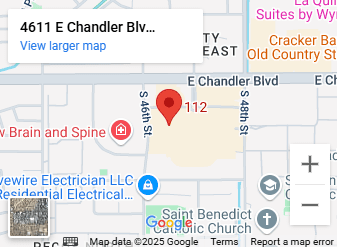How Does the Commission Structure Work When Selling a Business Through a Broker?
Selling a business involves complex financial, legal, and strategic challenges. Business brokers help streamline the sale by connecting buyers and sellers while handling valuations, negotiations, and due diligence with professionalism and transparency. This article examines the key aspects of broker fees and commission structures, including calculation methods, factors influencing fees, and strategies for negotiation. Understanding these components is crucial for sellers to protect their net proceeds and achieve optimal sale outcomes. This discussion aligns with best practices in the industry and is particularly relevant for sellers in competitive markets such as Arizona, where firms like B3 Business Brokers are well respected.
What Are Broker Fees in Business Transactions?
Broker fees are charges paid to business brokers for facilitating the sale or purchase of a business. These fees compensate brokers for services such as business valuation, marketing, negotiations, and managing due diligence. They are typically determined as a percentage of the final sale price or as a flat fee and are agreed upon in advance. A transparent fee structure helps ensure that sellers understand their financial obligations while providing consistency throughout the transaction. Higher fees may apply in cases of complex mergers or acquisitions that require additional services like market research or advanced negotiation strategies.
What Types of Broker Fees Should Sellers Expect?
When selling a business, sellers can expect various fee structures from brokers. The most common is: • Commission-based fees – calculated as a percentage of the final sale price, varying with deal complexity and transaction value. • Retainer fees – a fixed upfront payment covering initial evaluation and marketing efforts. • Success fees – payable only when the sale is successfully completed. Some brokers might also include advisory or flat fees for specialized services such as handling international inquiries or complex negotiations. Reviewing these fee types in the engagement agreement is essential for aligning expectations and ensuring that the services provided justify the overall cost.
How Are Broker Fees Calculated?
Broker fees are often calculated using predetermined formulas that may include: • A percentage of the final sale price. • Flat fees or a hybrid combination of a fixed retainer plus a success fee. For instance, smaller businesses may incur a higher percentage fee due to fixed costs, while larger deals benefit from economies of scale. Some brokers apply the doulbe Lehman Formula—a tiered method where the percentage decreases as the sale price increases. The key is transparency in how fees are derived, ensuring sellers understand what portion of the sale price is considered in the calculation and what costs are excluded.
Why Are Broker Fees Important in Business Sales?
Broker fees are critical because they secure expert services that lead to smoother transactions and, often, higher sale prices. Although these fees directly reduce the seller’s net proceeds, the value offered through professional mediation, extensive marketing, and strategic negotiation may more than compensate for the expense. Brokers create an environment where their performance is tied to achieving the best possible sale price, thereby enhancing overall deal outcomes. Transparent fee structures allow sellers to plan financially and help build trust between the broker and the seller—essential for navigating the complexities of selling a business.
How Does the Commission Structure Work When Selling a Business?
The commission structure is designed to align the broker’s incentives with the seller’s best interests. Typically, a commission is charged upon the successful sale of a business, motivating brokers to quickly secure the highest possible sale price. Commission rates usually range from 8% to 15%, though they can vary with business size, market conditions, and the range of services provided. Some brokers adopt tiered or hybrid models that combine an upfront retainer with a performance-based success fee. Clear, negotiated terms in the engagement agreement help ensure both parties understand the payment schedule and fee components.
What Is a Typical Commission Rate for Business Brokers?
Industry norms generally place commission rates between 8% and 10% of the final sale price. Higher-value transactions may involve slightly lower percentages, while smaller deals could command higher rates to cover fixed processing costs. For example, a $1 million sale might incur a commission around 10%, whereas larger transactions might see rates closer to 8% or 10%. While these ranges serve as a useful benchmark, actual rates are negotiable and can depend on a broker’s track record, marketing expertise, and the seller’s negotiation skills.
How Are Commissions Structured: Flat Fee vs. Percentage?
There are two main commission models: • Flat fee commissions – where a set fee is charged regardless of the sale price, offering budget certainty. • Percentage-based commissions – where the fee increases with the sale price, directly aligning the broker’s rewards with achieving a higher sale value. Hybrid models may combine both approaches, initially charging a flat fee to cover early work and later adding a percentage-based success fee. The choice depends on the seller’s preference for predictability or a performance-oriented plan, and it should be based on the specific business context and expected transaction size.
When Are Broker Commissions Paid During the Sale Process?
Broker commissions are usually paid in stages tied to key milestones: • A retainer or advance payment at the start to cover preliminary work. • The majority of the commission is paid upon closing the sale, once funds are transferred. Some agreements may break payments into parts—such as payment at signing the purchase agreement, after due diligence is complete, and at final ownership transfer. This staged approach helps manage cash flow for the seller and ensures that payment is tied to the successful progress of the transaction.
What Factors Influence Broker Fees in Business Transactions?
Several factors influence the final broker fee: • Business size and market value – Larger or more valuable businesses generally undergo more extensive due diligence and take longer to sell. • Industry specifics – Certain sectors may require specialized expertise, justifying higher fees. • Economic conditions – In competitive markets, higher valuations allow brokers to command increased fees. • Broker’s reputation and past performance – Experienced brokers with a strong track record may charge a premium. • Deal complexity – Additional layers such as multi-party negotiations or regulatory requirements can lead to increased fees. Understanding these variables helps sellers better negotiate fee terms to suit their individual situation.
How Does Business Valuation Affect Broker Fees?
The valuation of a business is the basis for determining the commission as it sets the metric from which fees are calculated. A higher, well-supported valuation typically results in a higher absolute fee, even though the percentage rate remains the same. Brokers use various data points—historical performance, projected growth, and industry benchmarks—to arrive at a fair market value. A transparent and accurate valuation not only helps in setting realistic price expectations but also strengthens the seller’s position during fee negotiations.
Do Industry Specializations Impact Broker Commissions?
Brokers with industry-specific expertise may command higher fees, as their specialized knowledge, tailored marketing approaches, and established networks can be critical in negotiating complex transactions. For example, sectors like technology or healthcare might require more nuanced strategies than more general markets. While higher fees may be associated with industry specialization, the increased value delivered through better positioning and negotiation often justifies the cost. Sellers should compare brokers’ experience in their specific field to ensure the fee is commensurate with the expected benefits.
How Does Deal Complexity Influence Broker Fees?
More complex deals demand additional time and expertise, leading brokers to charge higher fees. Complexity may arise from multiple revenue streams, varied financing arrangements, or stringent regulatory requirements. These factors necessitate extra due diligence and longer negotiation periods. Sellers should expect that as complexity increases, fees might be structured in tiers or include additional service charges. Clear communication about the elements driving complexity can help in negotiating a fee structure that fairly compensates the broker’s additional work.
How Can Sellers Negotiate and Minimize Broker Fees?
Sellers can reduce costs by approaching fee negotiations strategically: • Conduct thorough market research to understand typical fee ranges. • Obtain detailed breakdowns of fee structures from multiple brokers. • Negotiate a hybrid model that combines a manageable flat fee with performance-based incentives. • Request caps on variable fees to avoid unexpected costs. By clearly communicating expectations and comparing proposals, sellers can tailor the fee structure to minimize costs while ensuring they receive high-caliber services.
What Are Effective Negotiation Tactics for Broker Commissions?
Effective negotiation of broker commissions involves: • Collecting data on industry standard rates. • Requesting a comprehensive scope of services to justify the fee. • Considering performance-based models where commissions are linked to hitting certain benchmarks. • Discussing alternatives such as a sliding scale commission or fee caps. This proactive approach helps ensure that the commission structure reflects both the service quality and the seller’s financial goals.
Are There Alternatives to Traditional Broker Fees?
Aside from the standard percentage-based commission, sellers may consider alternatives such as: • Flat fee arrangements – offering cost predictability. • Retainer-plus-success fee models – combining an upfront fee with a lower success commission. • Performance-based incentives – where additional fees are tied to achieving specific targets. Such alternatives may provide greater flexibility and can be tailored to balance cash flow needs and risk tolerance.
How Does Transparency Improve Fee Negotiations?
Transparent fee structures are essential for building trust and avoiding disputes later in the process. When brokers clearly explain how fees are calculated—including all potential additional charges—sellers can make informed decisions and negotiate effectively. Open communication about fee components enables both parties to reach an agreement that reflects the true scope of services provided, benefitting the overall transactional process.
What Services Are Included in Broker Fees?
Broker fees generally cover a range of critical services: • Business valuation and market analysis. • Development of marketing materials and strategic advertising. • Access to confidential buyer databases and negotiation support. • Transaction management including due diligence and closing coordination. These services are designed not only to find a buyer but also to optimize the sale price and streamline the transaction, making the fee a strategic investment for sellers.
What Role Does Business Valuation Play in Broker Services?
Accurate business valuation is central to broker services. It establishes a realistic market price and underpins all subsequent marketing and negotiation efforts. A thorough valuation, based on historical data, growth potential, and industry benchmarks, strengthens a seller’s position and justifies the commission rate. In essence, the valuation is both a service and a negotiation tool that enhances overall sale credibility.
How Do Brokers Market Businesses to Potential Buyers?
Brokers employ multiple strategies to market a business effectively: • Utilizing online listings and industry networks. • Preparing detailed sales memorandums and engaging in targeted email campaigns. • Leveraging professional photography and digital advertising. These efforts increase the visibility of the business and attract well-qualified buyers, setting the stage for competitive bidding and an optimal sale price.
What Negotiation and Transaction Management Services Are Provided?
Broker services extend to thorough transaction management, which includes: • Handling negotiations and managing multiple offers. • Mediating contract terms and contingencies. • Coordinating due diligence and working with legal and financial advisors. This comprehensive involvement ensures that the sale progresses smoothly and that all regulatory and contractual details are managed efficiently, thereby reducing seller stress and potential delays.
What Are the Common Questions About Broker Fees in Business Sales?
Business owners frequently ask about: • The variability of fees by business size and complexity. • The structure and timing of payments. • The tax deductibility of broker fees. • The overall impact of fees on net sale proceeds. Clear and concise answers to these questions empower sellers to negotiate better fee arrangements and fully understand the cost-benefit balance of hiring a broker.
Can Broker Fees Vary by Business Size or Type?
Yes, broker fees vary widely. Larger, more complex businesses tend to secure lower percentage fees because the absolute fee is higher, while smaller businesses may face higher percentages to cover fixed costs. Sellers should discuss these variations with brokers to ensure fees match their business’s scale and market value.
Are Broker Fees Tax Deductible for Sellers?
In many cases, broker fees are tax deductible as selling expenses. However, deductibility depends on local tax laws and the specifics of the transaction, so sellers should consult tax advisors to maximize potential deductions.
How Do Broker Fees Compare to Other Transaction Costs?
Broker fees are one part of the overall selling costs. They are competitive when compared with legal fees, accounting fees, and due diligence expenses. The expertise provided by brokers often results in higher sale prices, which can more than offset the commission paid.
How Do Broker Fees Impact the Overall Business Sale Outcome?
Effective management of broker fees can lead to higher sale prices and better net proceeds. While fees reduce the upfront amount received, the improved deal structure and competitive bidding process driven by skilled brokers can substantially increase the final sale value.
How Do Broker Fees Affect Net Proceeds From the Sale?
A well-negotiated fee structure helps preserve a larger portion of the sale price for the seller. By reducing unnecessary costs—through lower percentages or fee caps—sellers can ensure that the net proceeds reflect the true value of the business being sold, contributing to a more profitable outcome.
What Are the Benefits of Paying Broker Fees for Sellers?
Despite reducing net proceeds, broker fees offer significant benefits: • Access to expert valuation and market positioning. • Enhanced marketing leading to competitive offers. • Efficient negotiation and transaction management. These advantages often result in a higher overall sale price and a smoother, less stressful selling process.
How Can Choosing the Right Broker Maximize Sale Price?
Selecting a broker with proven industry expertise, a strong buyer network, and a track record of successful transactions is key. The right broker conducts accurate valuations, markets effectively, and negotiates aggressively to drive up the final sale price, ensuring that the seller achieves the maximum financial return.
Frequently Asked Questions
Q: What is the typical commission rate for business brokers?A: Typically, commission rates range from 8% to 15% of the final sale price, but actual rates may vary with business size and deal complexity.
Q: How are broker fees structured and when are they paid?A: Fees can be flat, percentage-based, or a hybrid model. Most fees are paid at closing, with possible retainer fees at the outset.
Q: Can seller negotiate broker fees?A: Yes, sellers can negotiate fees by comparing proposals and discussing alternative fee structures.
Q: Are broker fees tax deductible as selling expenses?A: Often, they are tax deductible; however, sellers should consult a tax advisor for specifics.
Q: How does business valuation influence broker fee calculation?A: Higher, well-supported valuations lead to higher absolute fees, as commissions are based on the final sale price.
Q: What additional services do brokers provide beyond negotiating a sale?A: Brokers also manage due diligence, marketing, and transaction closing, all of which add value to the sale process.
Q: How do industry specifics affect the broker fee?A: Specialized industries may command higher fees, reflecting the broker’s expertise and targeted marketing efforts.
Final Thoughts
Broker fees and commission structures are central to the successful sale of a business. Sellers who understand these details—from valuation and industry specialization to effective negotiation—are better positioned to secure favorable terms and maximize their net proceeds. Transparent fee agreements and a well-chosen broker can make the complex sale process smoother, ultimately leading to a more profitable transaction.




